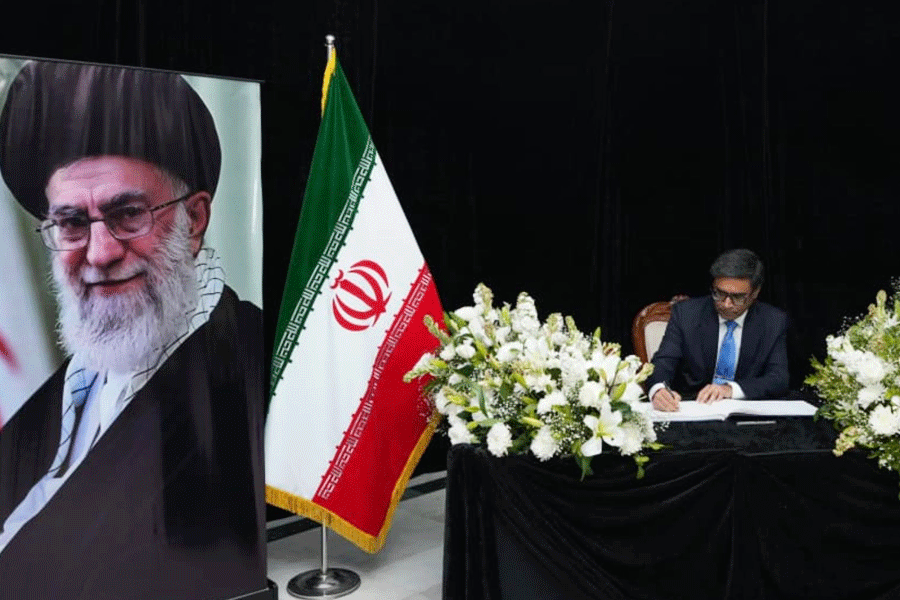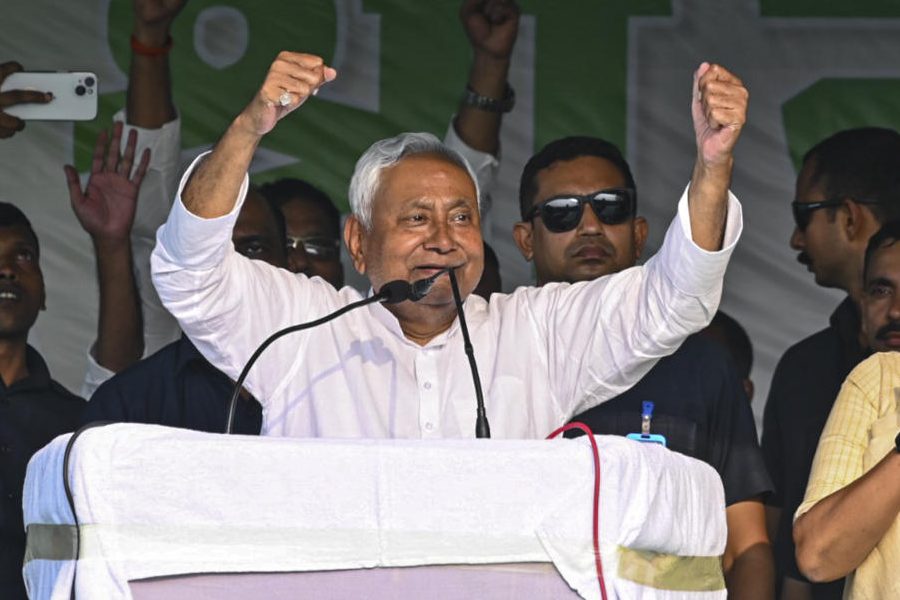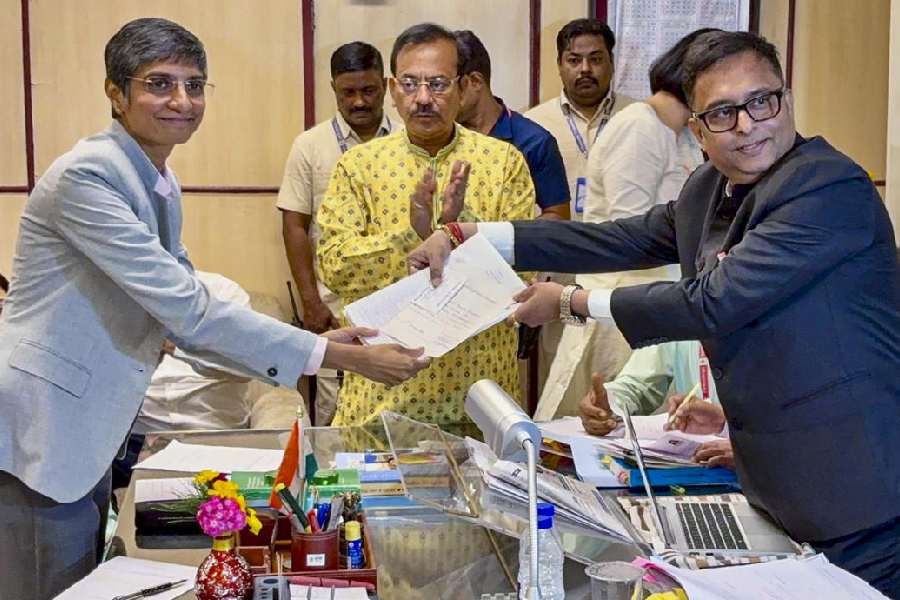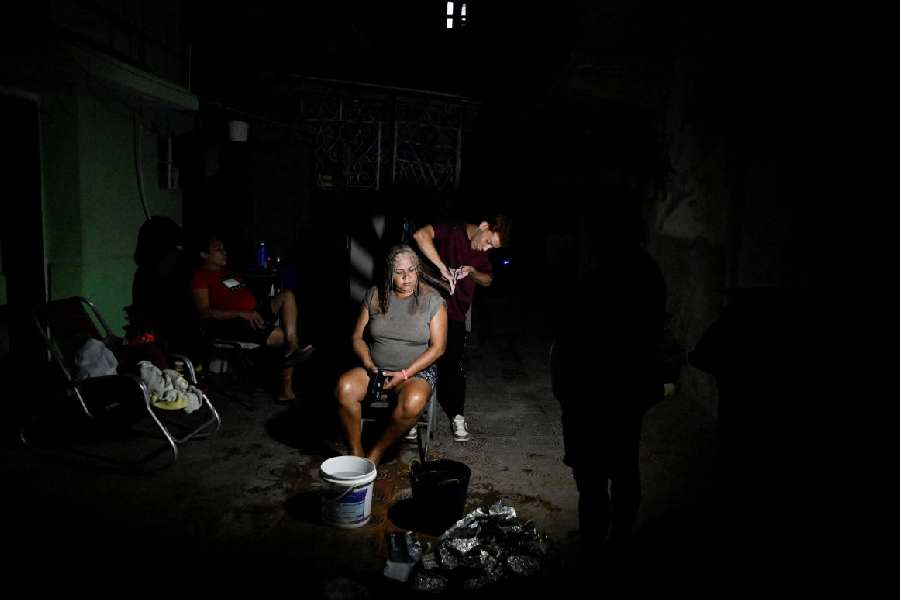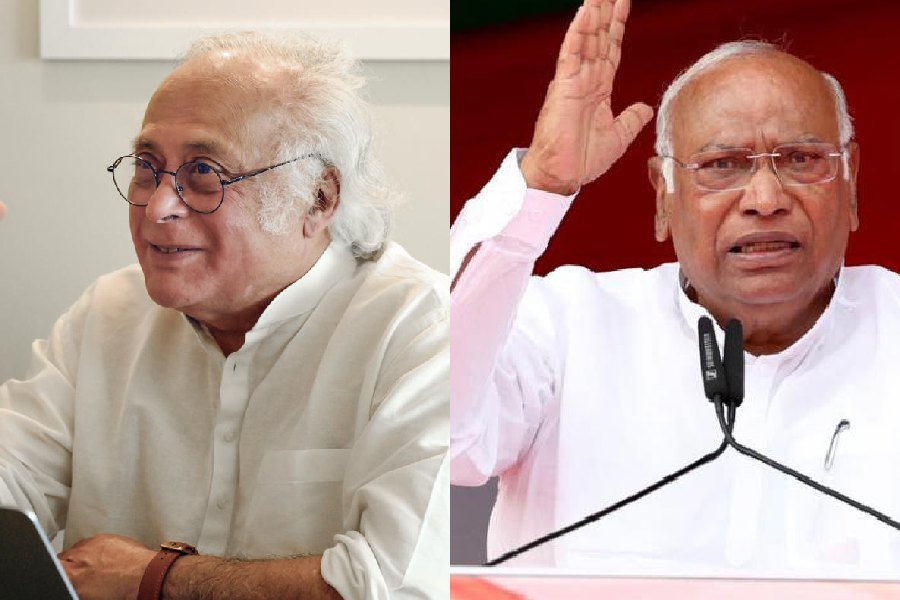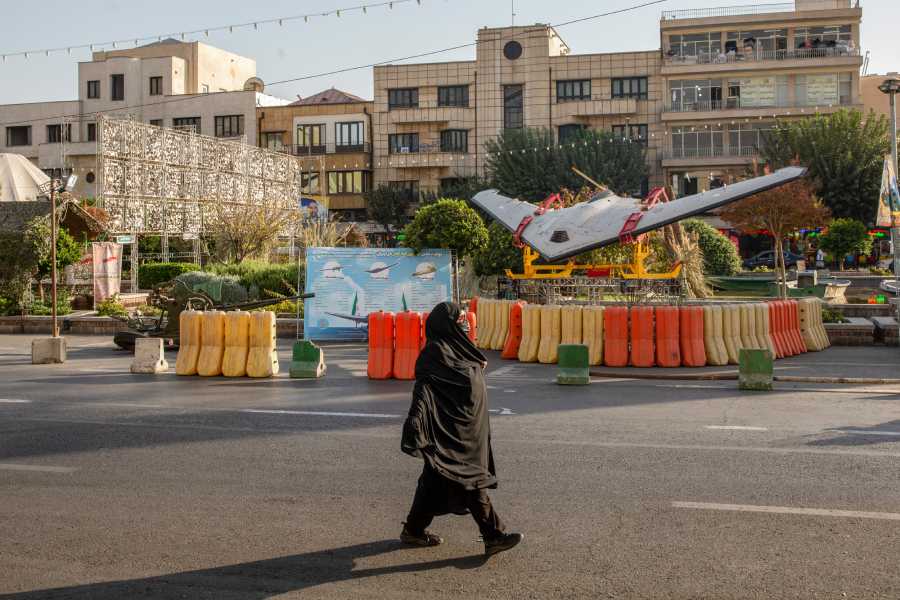 |
 |
| Hamid Ansari (top) and Hassan Rouhani |
Washington, Aug. 3: In Tehran, they are dusting up statements, writings and interviews by Hamid Ansari which go way back to at least 2005 as the Vice-President arrives in Iran for the swearing-in of its new President, Hassan Rouhani, on Sunday.
The decision to send Ansari to meet Rouhani is a rare foreign policy decision where the larger good has triumphed over pettiness and small-minded, selfish political calculations, what could truly be called an “initiative”, uncommon in South Block these days.
Ansari is the lone member of New Delhi’s ruling political establishment who has not only disagreed with the Manmohan Singh government’s policy towards Iran but has also aired those disagreements in great detail in public. There have been others of equal, if not higher, standing within the ruling circle who share Ansari’s disagreement, but they have never aired those views in public.
In a signed article in Outlook magazine after the UPA government chose to vote in the International Atomic Energy Agency (IAEA) in favour of referring Iran’s nuclear programme to the UN Security Council, Ansari wrote: “It would be difficult to find a parallel to this in the annals of conference diplomacy.”
Ansari is a practitioner of conference diplomacy, having served as India’s permanent representative to the UN in New York. The article written on October 10, 2005, said: “India’s vote in the IAEA on Iran’s nuclear programme has caused distress….”
After explaining in detail his view of how the vote came about, Ansari concluded: “The crude game for domination was played by the US with the EU acting as an American surrogate. Was it necessary for us to become a surrogate’s surrogate? How often would we be asked to take the fidelity test?”
One year and nine months later, when Ansari was nominated as the UPA’s candidate for Vice-President, he was asked about his views on Iran. Ansari had refused to back down for the sake of expediency and insisted that he stood by what he wrote after the IAEA vote.
On another occasion, journalist Praful Bidwai quoted Ansari in an article for the Inter Press Service (IPS) as saying that India’s stated policy on Iran “warranted at least abstention from, if not opposition to, the vote”.
Ansari told IPS that “this speaks of poor diplomacy with respect to (the) Non-Aligned Movement (NAM), as well as a confused foreign policy”. Describing western tactics in the run-up to the vote as a “mere ploy” to trap New Delhi, he added that “India would break ranks with a number of NAM countries such as South Africa, Brazil and Malaysia, the current chair of NAM” at the IAEA.
The Iranians fondly remember Ansari, not merely as another diplomat who served in Tehran, but as an Indian ambassador who genuinely believed in his country’s ties with Iran, ties that Rajiv Gandhi had tried to revitalise after several hiccups in the decade after the Islamic revolution.
Time was not on Rajiv’s side, but when P.V. Narasimha Rao decided that one of his foreign policy goals would be to wean Tehran away from Islamabad and woo it as a strategic friend, Ansari was ambassador in Iran.
During US President Barack Obama’s visit to India in 2010, one meeting which overran its allotted time was with Ansari. As White House aides fidgeted and discreetly signalled to the President that he was late for his next appointment, Obama continued to talk to the Vice-President.
Most of their conversation was about Iran. Ansari’s reputation had travelled to Obama and he wanted a refreshingly new and different assessment of Tehran. After listening to Ansari’s views on Washington’s options on Iran, Obama told the Vice-President “I am not in a position to do it”, according to those privy to that conversation.
The implication was that Obama did not disagree, but that he simply did not have the ideological space or the political capital to change policy then. Obama was already approaching his re-election and the Jewish lobby here would have done serious damage to his prospects of retaining the White House, had there been any overtures to Iran.
Although India decided wisely to send one of its few former ambassadors who is open-minded on Iran, the eleventh hour upgrade of its delegation to greet Rouhani caused some loss of grace. External affairs minister Salman Khurshid was to go to Tehran until yesterday, although it was never formally announced.
The representation was upgraded to Vice-President after the Iranian foreign ministry revealed that the Presidents of Pakistan, Afghanistan and Sri Lanka from the neighbourhood would all be in Tehran. Russia will be represented by its parliament Speaker.
Another consideration was a report to the US Congress four days ago by the Obama administration’s Special Inspector General for Afghanistan Reconstruction, John Sopko, which took New Delhi somewhat by surprise. Sopko’s organisation is the US government’s lead agency on Afghanistan’s reconstruction, also tasked with avoiding waste and fraud.
Referring to intense efforts now under way to develop Afghanistan’s mineral resources, the July 30 report said “under this plan Iran is the preferred destination for mineral exports because the route is more efficient and Iran’s rail infrastructure is in better condition than Pakistan’s”.
The report envisioned revenues of $56.1 billion from such exports from 2017 to 2040 using one rail line and $12.6 billion using another line during the same time frame. “Both lines facilitate trade with Iran.”
The report also hinted at “future developments in US policy towards Iran”.
India has dithered on using the same route for developing its trade with Central Asia since the early 1990s because it is afraid to annoy the US over Iran.
The report set the proverbial cat among the pigeons in policy-making circles in New Delhi because there was a sudden realisation that after voting against Iran in the IAEA and cutting oil imports from Tehran to please the Americans, India could one day be left out in the cold if Obama decides to slowly but steadily cosy up to Iran’s new liberal President.
Besides, Rouhani’s choice of foreign minister is a suave, US-educated former permanent representative to the UN, Mohammad Javad Zarif, who would find it easy to work for a rapprochement with Washington. All of which means falling back on Ansari to salvage India’s relations with Iran.





